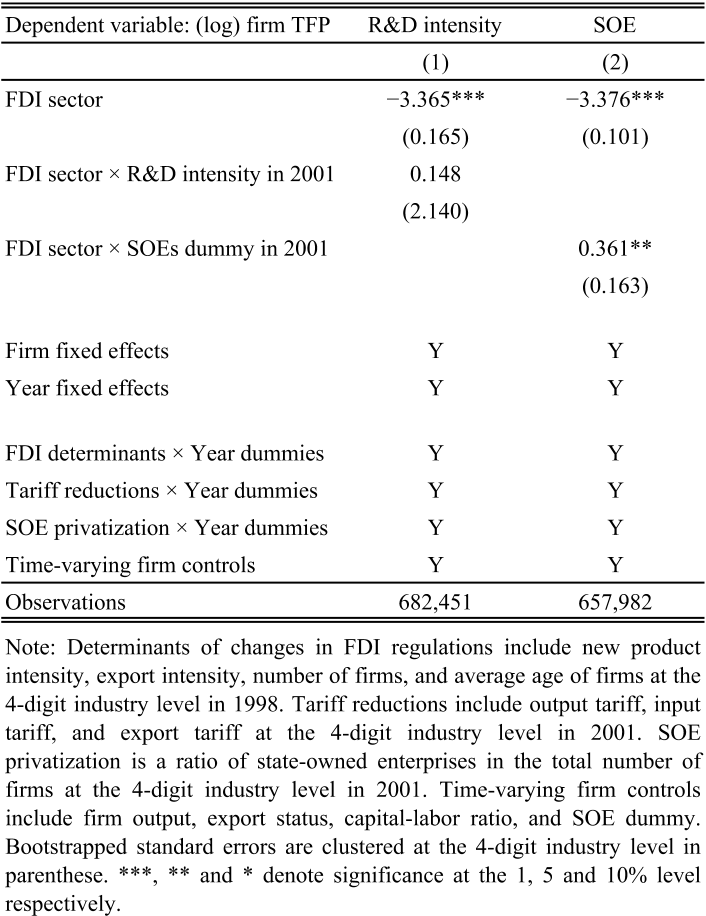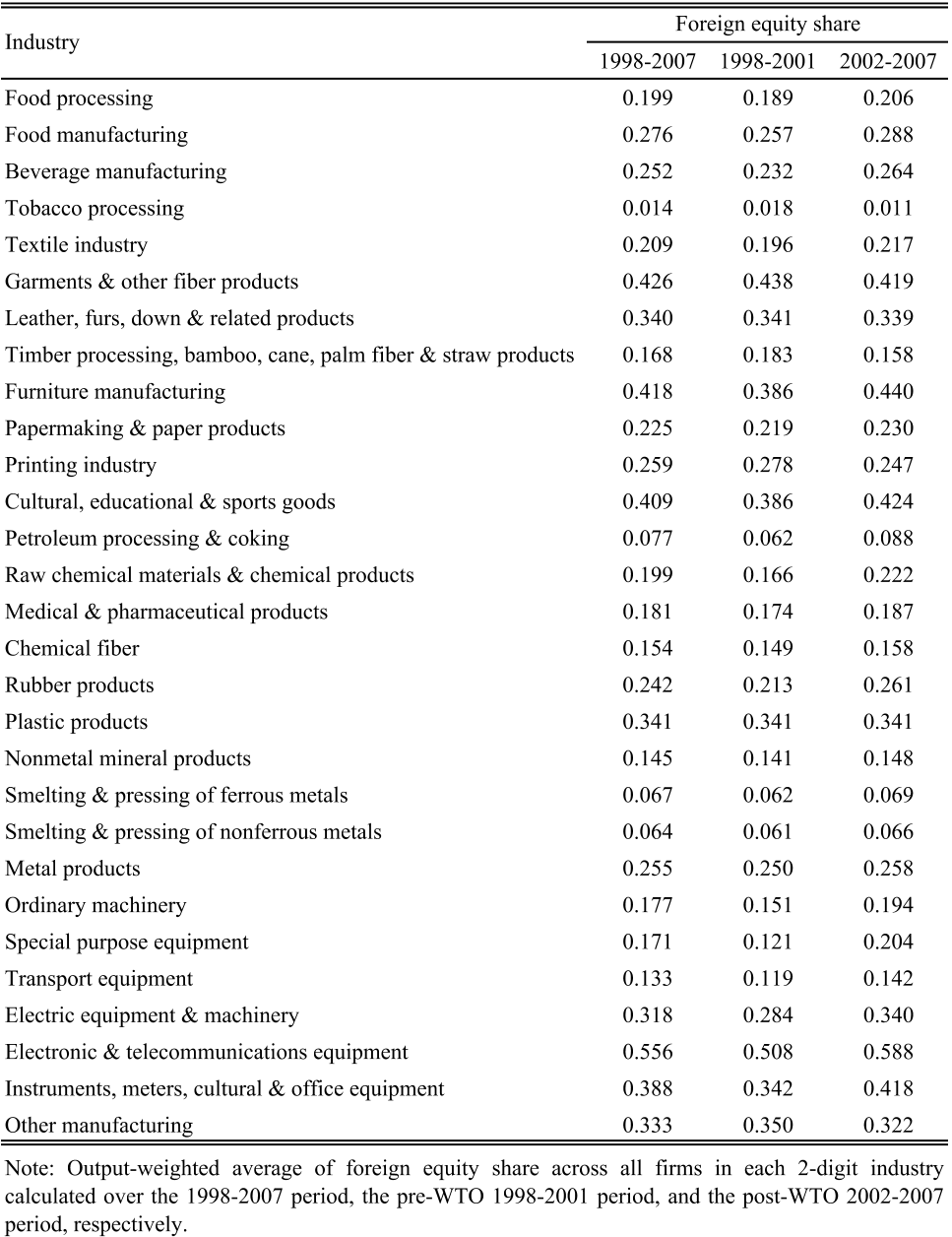Identifying FDI spillovers
TLDR
In this paper, the authors improved on the strategy used in the literature to identify the spillover effect of horizontal foreign direct investment (FDI) by taking advantage of the plausibly exogenous relaxation of FDI regulations on China's World Trade Organization accession at the end of 2001.About:
This article is published in Journal of International Economics.The article was published on 2017-07-01 and is currently open access. It has received 281 citations till now. The article focuses on the topics: Spillover effect & Foreign direct investment.read more
Figures
Citations
More filters
Journal ArticleDOI
Low-carbon city pilot and carbon emission efficiency: Quasi-experimental evidence from China
Yantuan Yu,Ning Zhang +1 more
TL;DR: In this paper, the causal effect of low-carbon city pilot (LCCP) policy on carbon emission efficiency (CEE) was identified and a general nonconvex metafrontier data envelopment analysis model was developed to calculate CEE.
Journal ArticleDOI
Green spillovers of outward foreign direct investment on home countries: Evidence from China's province-level data
TL;DR: Wang et al. as mentioned in this paper examined empirically the reverse spillovers of China's OFDI on its domestic green development, and found that the relationship between OFDI, absorptive capability, environmental regulation stringency, and green economic growth are robust to multiple econometric methods and alternative proxies for threshold variables.
Repository
Is housing still the business cycle? Perhaps not
TL;DR: This article showed that residential investment led GDP under a wide range of specifications, while non-residential investment did not, and showed that the increasing stringency of local land use policy had interfered with the ability of the Federal Reserve to use housing as an instrument on monetary policy.
Journal ArticleDOI
Greening the career incentive structure for local officials in China: Does less pollution increase the chances of promotion for Chinese local leaders?
Mingqin Wu,Xun Cao +1 more
TL;DR: Li et al. as mentioned in this paper examined the effect of local environment regulation outcomes, i.e., local pollution, on leaders' chances of promotion, and found that those who are able to reduce air pollution are more likely to be promoted.
References
More filters
Journal ArticleDOI
Measuring Spillovers from Industrial R&D: On the Importance of Geographic and Technological Proximity
TL;DR: This paper examined the role of geographic and technological proximity for interfirm spillovers from R&D in SIC 35 and found that spillovers among firms within narrow, four-digit industrial classifications are generally stronger than those identified within the broader, three-digit class.
Journal ArticleDOI
Does Distance Matter in Spillover
László Halpern,Balázs Muraközy +1 more
TL;DR: In this paper, the authors examined the technology transfer through FDI in Hungary, using a large panel dataset of 24,000 firm-level observations, and found that there are significant horizontal and backward spillovers for domestic-owned firms suggesting the presence of foreign competitors and customers is beneficial for domestic firms.
Posted Content
Spillovers Through Backward Linkages from Multinationals: Measurement Matters!
TL;DR: In this paper, the authors argue that the measures of backward linkages used in recent papers on spillovers from multinational companies are potentially problematic, as they depend on a number of restrictive assumptions, namely that multinationals use domestically produced inputs in the same proportion as imported inputs, multinationals have the same input sourcing behaviour as domestic firms, irrespective of their country of origin, and the demand for locally produced inputs by multinationals is proportional to their share of locally produced output.
Journal ArticleDOI
Spillovers through backward linkages from multinationals: Measurement matters!
TL;DR: In this article, the authors argue that the measures of backward linkages used in recent papers on spillovers from multinational companies are potentially problematic, as they depend on a number of restrictive assumptions, namely that multinationals use domestically produced inputs in the same proportion as imported inputs, multinationals have the same input sourcing behaviour as domestic firms, irrespective of their country of origin, and the demand for locally produced inputs by multinationals is proportional to their share of locally produced output.
Posted Content
When Does FDI Have Positive Spillovers? Evidence from 17 Emerging Market Economies
TL;DR: In this article, the impact of foreign direct investment on the efficiency of domestic firms in the host country was investigated using firm-level data and national input-output tables from 17 countries over the 2002-2005 period.
Related Papers (5)
Do Domestic Firms Benefit from Direct Foreign Investment? Evidence from Venezuela
Brian J. Aitken,Ann Harrison +1 more





